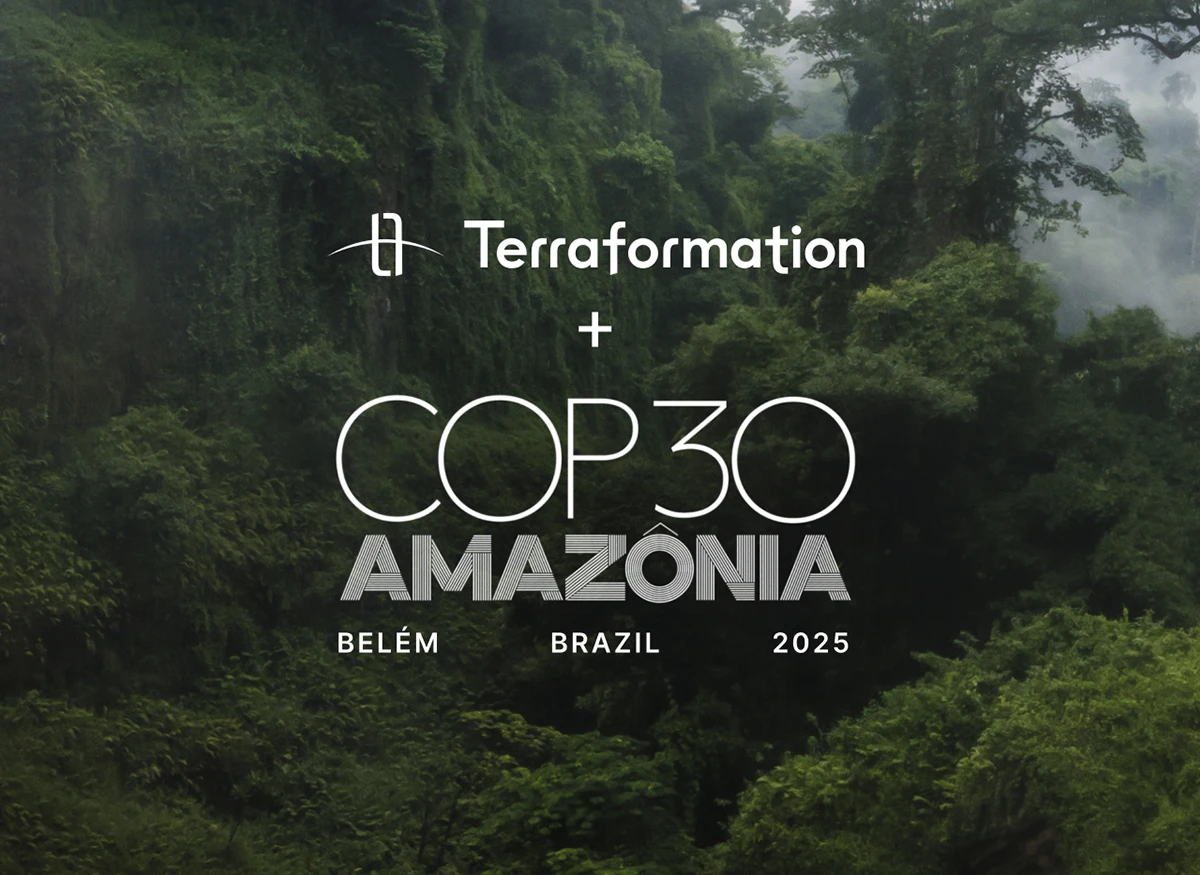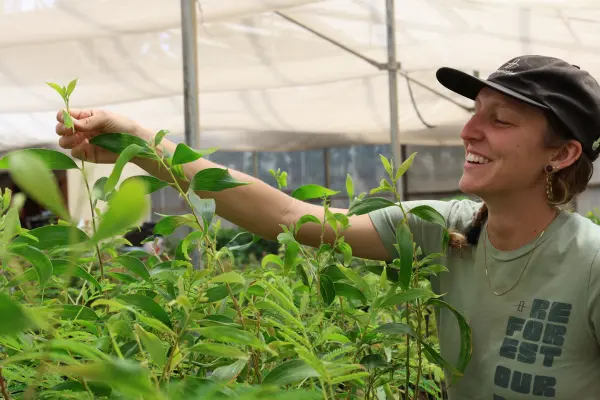Bringing GAAP Down to Earth

By Neal Spackman & Yishan Wong
As our species has done for millennia, we extract value from nature, trading natural capital for financial capital, and call it economic growth. To measure economic growth, we’ve developed a complex and standardized system of accounting to track and value goods and services we all exchange, codified under a system called Generally Accepted Accounting Principles (GAAP, in the USA), or the International Financial Reporting Standards (IFRS, in most of the rest of the world). There is a gaping hole in these accounting systems, one that incentivizes poor resource management and warps our perception of wealth. That gaping hole is called the environment.
It was Paul Harvey who said that all human beings “owe our existence to a six-inch layer of topsoil and the fact that it rains.” Soil and water are the foundational resources of human society, and they are maintained by ecosystems, which in turn are maintained by biodiversity. Despite our total dependence on biodiversity, ecology, soil, and water, our systems of accounting pretend that their value is zero. In today’s accounting systems, a living tree has a value of zero, but once it is killed and converted to board-feet of lumber, all of a sudden it’s worth something.
Deforestation may provide us with wood and new agricultural fields, but leads to drought/flood cycles, and eventually desertification — an unaccounted-for loss that inevitably causes significant damages, compromises our ability to grow food, pollutes waterways, erodes soils, and kills off biodiversity. Yet, according to the way we track value and finance, GDP is up!
A salient example is mangroves and their ecosystem services, which today are valued at $2.7 trillion per year in coastal protection, climate mitigation, fishery maintenance, tourism, and other benefits. Sadly, our species has destroyed about half of the world’s mangroves in the past 75 years, meaning there should be another $2.7 trillion in value being created every year.
That value is gone, and the loss is felt locally in coastal communities around the world: when the fish catch plummets, when hurricanes do much more damage, and when palm plantations and whole villages sink into the ocean. GDP and other metrics may reflect those damages in some ways (such as a drop in fish production), but this is only a fraction of the real value of those lost ecosystems.
Another example: A salmon farm in Tasmania creates a dead zone in the ocean — not just killing fish to grow fish, but eradicating ocean ecosystems and replacing them with toxic algae blooms. This is a comparatively small private gain for the salmon farmer and a huge public loss for everybody else. Somehow it still counts as a contribution to Tasmania’s GDP, and the company gets to call itself profitable, because in our financial system biodiversity and ecosystems count for nothing.
It is common sense that killing off ecosystems to extract more of what an ecosystem produces is insanity, but this insanity is enabled by a false accounting system. False, because it tells the lie that 0 + 1 – 2 = 1, simply by pretending the –2 doesn’t exist. This perpetuates the deeper lie that we can degrade Earth without experiencing loss; the lie that we can shrink Earth’s carrying capacity, erode its ability to support life, degrade its systems of function, and still experience growth. This lie pervades all conventional accounting, from households, to corporations, to nonprofits, to governments.
Can this be fixed?
The fact of the matter is that many people do not care about the damage done to Earth, especially when such caring compromises their own pocketbooks. Thus, rather than hoping for general human enlightenment, we propose a practical and pragmatic solution based on hard numbers, data, and science. We call it “true accounting.”
True accounting means changing our financial systems to account for how our societies interact with Earth. It means internalizing the damages to Earth done by governments and corporations, and reflecting those damages on all standard financial reports. It means recognizing and accounting for the tradeoffs when we exchange natural capital for financial capital. It also means recognizing the benefits humanity can bring to ecosystems, and accounting for all the ways soil, water, biodiversity, and ecologies benefit us.
GAAP and IFRS are extremely good at keeping a record of how we exchange value with each other, how we value our interactions, and the sale and production of the goods and services that make up our economies. Now they need to be reformed to keep an accurate account of how we exchange value with Earth, and how our societies interact with ecologies, biodiversity, soil, and water. Fundamentally, true accounting means being honest with ourselves, and no longer pretending that the foundation of our societies is an externality.
Some countries have already begun moves toward this change. In 2021, France issued a decree requiring all financial institutions to disclose biodiversity- and climate-related risks, along with strategies for reducing biodiversity impacts. The same year, the UK-commissioned Das Gupta Review concluded that “our unsustainable engagement with nature is endangering the prosperity of current and future generations,” and that “deep-rooted, widespread institutional failure” to value nature was the heart of the problem. Aside from the policy aspect, rapidly emerging technological advances in monitoring, recording, and verification of ecosystemic change are bringing down the costs that such accounting would require.
What would happen if this true accounting became widespread and mandatory? The answer is from Econ 101: Policy creates incentives, and incentives drive behavior. As the real value of nature were internalized into our financial systems, true accounting would unleash a wave of innovation and creative destruction contributing to truly sustainable systems in manufacturing, transportation, energy, packaging, agriculture, waste disposal, and CPGs.
Corporations are extremely good at minimizing costs in order to stay competitive; with the adoption of true accounting, they would race to minimize the environmental costs now required to be reflected on their books. The most destructive and polluting corporations would be composted by innovative companies able to replicate the provision of goods and services with sustainable methods of operation. The adoption of circular economies, regenerative methods, and zero-waste principles would rapidly accelerate, all in a bid to avoid costs.
The greatest comparative advantage our species has — the ability to adapt to almost all circumstances — would be redirected and harnessed toward reflecting a true account of how our species interacts with Earth. Rather than pretend growth and pretend profit, pretending that Earth has no value, and rather than exchanging ecological capital for financial capital at a net loss, we would have true growth: a regeneration of lost ecological capital leading to ecological restoration and a real increase in productivity and wealth. In other words, true accounting would lead to true economic growth, based on a foundation of increasing Earth’s carrying capacity and restoring Earth’s ecosystems.
Who says no?
Many have suggested that the key to building sustainable civilizations is a mass spiritual awakening to reconnect with nature: that we need to “touch grass,” “get back to nature,” and “just stop oil.” While mass human enlightenment sounds lovely, it’s a poor foundation on which to build a sustainable future and the preservation of Earth’s ecologies.
Others recoil at the thought of putting a dollar value on nature, suggesting that to do so profanes the sacred, and that there is no number that could capture the value of something that is truly priceless. This ignores the fact that we have already put a number on nature, and it is the most mistaken and most egregious number we could choose to reflect nature’s value: zero.
Such a change would also be fought by powerful corporations — those most responsible for ecosystem degradation, for deforestation, for desertification, for dead zones in our oceans, for biodiversity and habitat loss, for air and water pollution. By and large, at the global scale, the people and corporations doing this have gotten off more or less scot-free. They have exchanged natural capital for financial capital, at a true net loss for the rest of us, and yet been able to claim their own profitability and a contribution to GDP. Somehow we call this exchange growth.
We declare that GAAP and IFRS should no longer be “generally accepted,” because they fail to account for the foundation of all human society. No longer can we consider our foundation an externality. Let’s stop lying to ourselves, and no longer pretend our accounting is complete.
When you next interact with standard financial reports, when you check the P&L statement of any stock, or when you read about the economic growth of some country or region, bear in mind that some of the most important numbers that should be on those reports aren’t even considered line items. Do not forget that the metrics you are reading are incomplete and insufficient to be a true accounting, and that underlying all those reports is a fundamental lie of omission.
We call on our governments, the Financial Accounting Standards Board, and the IFRS Foundation to reform standard accounting systems, such that the real value of Earth is accurately reflected. It is imperative that the real costs of damage done to ecosystems are internalized by those responsible for such destruction, and those who steward Earth’s ecosystems are rewarded for doing so.
We call on corporations to make a transparent accounting of their impact on Earth, and to take responsibility where ecosystem degradation is a result of their practices. Finally, we call for a widespread adoption of true accounting, because biodiversity, water, soil, and ecologies are not externalities to be ignored, but the very foundation of our societies and the global economy.
About the
Series:
Who Will Speak For The Trees?
At a time when human economic development is prioritized over the needs of nature, the Who Will Speak for the Trees? series features top reforestation leaders with a broad range of restoration expertise, including climate tech, monitoring, science, finance, media, and more. These diverse voices offer expert viewpoints to instill confidence in how humanity can support nature to deliver a forested future for all living things on Earth. Join us for this ongoing series to learn more about the science of reforestation and how restoring ecosystems is part of a comprehensive climate solution.
















